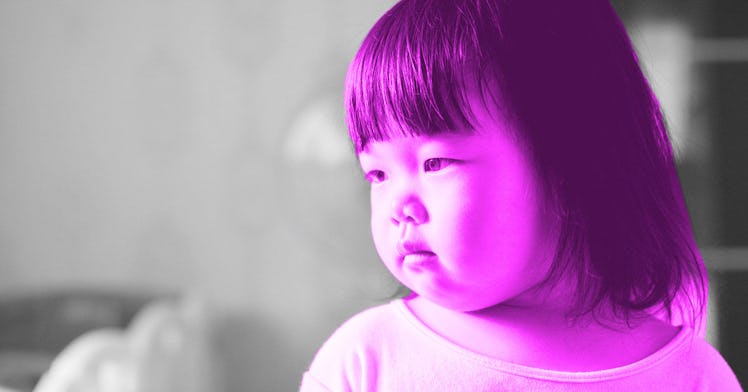How to Recognize Signs of Autism in Babies
Awareness of autism has increased exponentially in recent years. But detection can be tricky, especially in very young children.

Signs of autism and particularly sign of autism in babies are of increasing concern among modern parents. But importantly, the most apparent sign of autism in children generally begin to manifest themselves until between the ages of 12-months and 2-years-old. However, autism in babies can appear as early as 8-months-old. The difficult thing for even the most attentive parent is figuring out which concerning behaviors are simply part of a baby’s social and cognitive development, and which are symptomatic of a child being on the autism spectrum.
There is a diverse set of autism symptoms, and some are extremely subtle. For instance, a child simply might not be developing “joint attention” skills, like pointing at objects for a parent to see. At 12 months of age, they may lack a reciprocal social smile (that is, returning a parent’s smile) which is cause for concern. And where neurotypical kids might constantly bring objects to parents, a child on the spectrum might not. But on the less subtle side, children on the autism spectrum may also have difficulty making eye contact, parrot the things other people say, not respond to their name, or flap their hands repetitively
Importantly, none of these behaviors taken on their own should cause great concern. But when they stack up, it’s time to alert a pediatrician.
“It has to be a host of concerns to push it to the point of a diagnosis, It’s a whole range of behaviors.” says autism specialist Dr. Grace Gengoux of Stanford Children’s Health. “The key is to look for a pattern of behavior that’s happening all the time: It’s normal for kids to not make perfect eye contact, but a kid who never makes eye contact with the people he’s interacting, that’s where the concern becomes larger.”
Signs of Autism in Babies Age 1- to 2-Years Old
- Lack of engagement via “joint attention”
- No words by 18 months
- Not bringing objects to parents
- Compulsive repetition of behaviors
- Lack of a “social smile”
- Difficulty making eye contact
- Lack of gesturesSocially withdrawn
- Lack of response to his or her name
- Constant repetition of what other people say
- Trouble with transitions
- Loss of verbal and social skills (reversion)
- Plateauing of developing social and verbal skills
Other signs are more dramatic and alarming. Lack of words by 18 months is immediately concerning. A child who is completely socially withdrawn and has no interest in interacting with parents and other kids should be an immediate red flag. Another issue is the regression and plateauing of social skills. So when a child suddenly loses skills they’ve gained during the course of development, or simply hits a stopping point, parents may want to seek help.
“There’s the notion of autism regression where a baby between 15-20 months will lose verbal and social skills. That’s classically characteristic of autism,” says Dr. Mendy Minjarez, clinical director at the Seattle Children’s Autism Center. “But sometimes what happens is a plateau. A baby that was previously pretty smiley or engageable will plateau and not develop skills after 15 or 18 months. It’s not a regression so it doesn’t scare people into thinking something’s wrong, but I think a plateau should prompt an automatic referral to a specialist.”
One key for parents is observing the persistence of behaviors that seems off. Figuring out these patterns can help a parents figure out whether it’s normal kid behavior, a sign of autism, or a symptom of a completely different behavioral issue.
“Kids do weird stuff all the time,” says Minjarez. “It becomes more about looking for the lack of appropriate skills rather than the presence of unusual behaviors, and some of the repetitive behaviors will begin to emerge. If you see them at a young age, that’s cause for concern.”
Both Minjarez and Gengoux say that a concerned parent should alert a pediatrician, and can also be proactive. Minjarez recommends parents read An Early Start for Your Child with Autism a book that breaks down the Early Start Denver Model of autism treatment, which promotes activities that may help a child with autism develop. Importantly, getting a child evaluated or visiting a specialist early really has no negative effects, even if it turns out to be a false alarm.
“The things we do at very young ages for kids with autism are good for all kids: They’re strategies that support social communication development… (that) engage them and have high-affect, playful interactions,” says Minjarez. “If nothing else, all parents are doing is promoting social communication development. You’re not going to be losing time if the child turns out to be fine.”